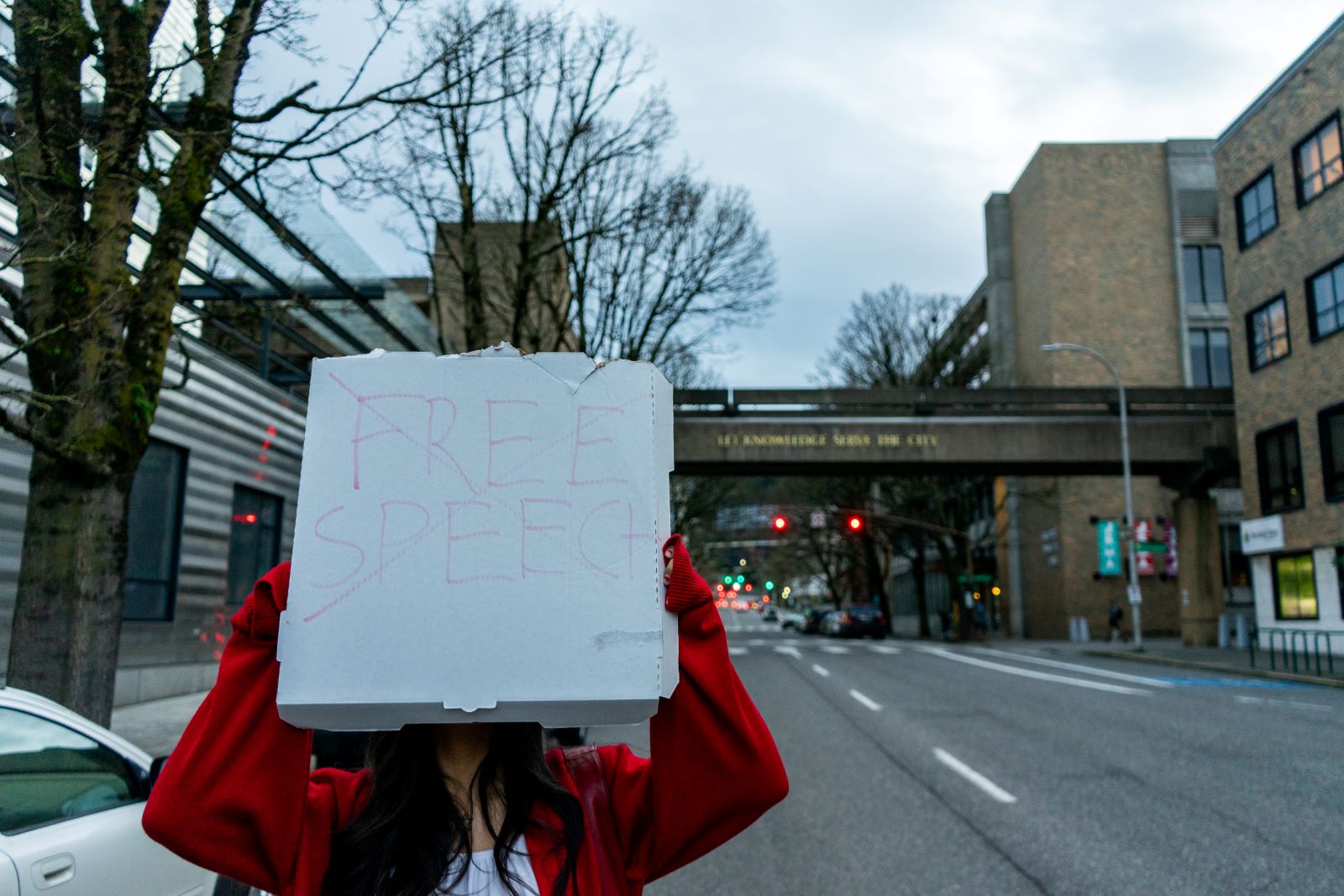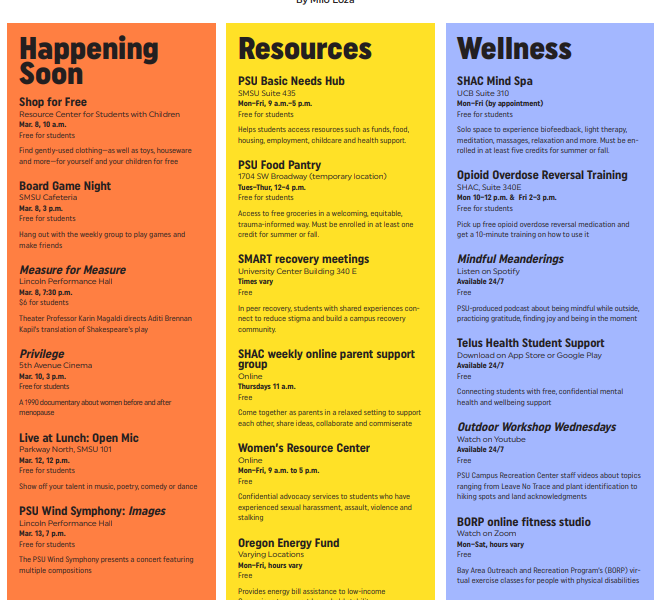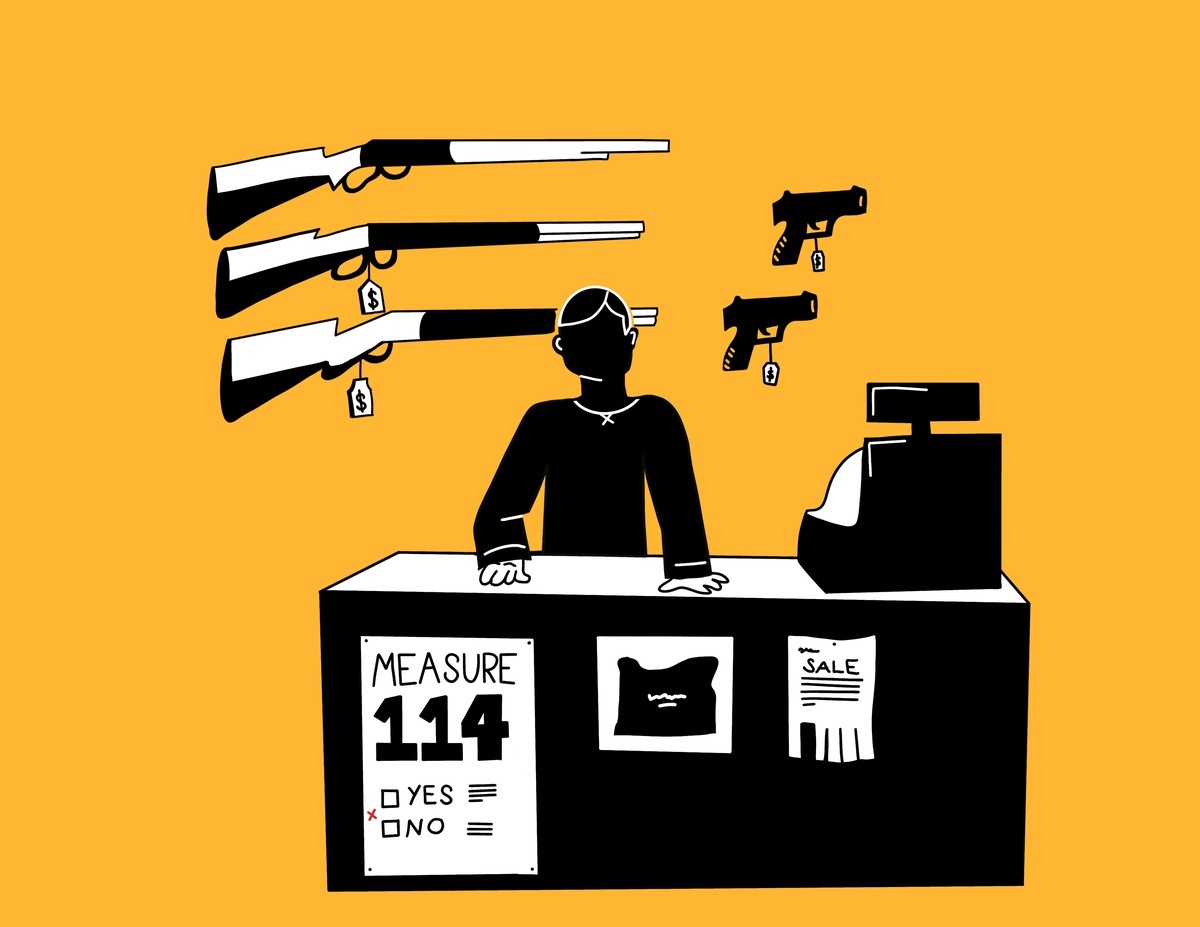The Foundation for Individual Rights and Expressions (FIRE) released its annual report. The report ranks colleges across the United States and how the colleges’ policies either protect or infringe on student and faculty rights to freedom of speech. Portland State received a “red light” rating, indicating that the school has at least one policy infringing on free speech. Of the 248 schools ranked, PSU came in at 232.
According to FIRE’s website, 98 of the 489 schools in their database earned a “red light” rating for maintaining policies which clearly and substantially restrict free speech and 320 earned a “yellow light” rating for maintaining policies which impose vague regulations on expression, 20% and 65.4% respectively. Only 63 schools—aka 12.9%—earned a “green light” rating for maintaining policies which do not seriously imperil free expression. Eight schools, 1.6% of the 489, received a “warning” rating, because they do not promise students free speech rights at all.
The website explained how this is the second year in a row the percentage of red light schools increased, which reversed a 15-year trend of decreasing percentages of red light schools.
The policy from PSU which received a red light rating was the Prohibited Discrimination and Harassment Policy, which outlines the university’s policy for assessing instances of discriminatory and sexual harassment claims.
FIRE’s Director of Policy, Laura Beltz, explained harassment policies such as this are often flagged due to their overbroad nature, which can infringe on student and faculty rights to free speech.
“What it seems to be is that schools are hanging on to policies on harassment that are overbroad, and those are policies that we see with the worst ratings right now,” Beltz said. “Harassment is, of course, not protected by the first amendment. The government can certainly take action against harassment without infringing on free speech rights, but there are a lot of schools that have policies on harassment that encompass free speech. They are written so broadly that they include both speech that actually would constitute harassment and protected speech.”
Beltz said these overbroad policies are often written this way when schools try to simplify the definition of harassment, which ultimately makes the school’s definition of harassment much more vague than the typical legal standard for such definitions.
This can result in protected speech—such as a single dirty joke—being qualified as harassment when the legal definition of harassment requires it to be severe, pervasive and disruptive, resulting in a student being denied opportunities or impacting their education.
For example, Beltz said if a student happened to see someone on campus protesting with a sign that had a sexualized word which they found offensive, and then they decided to report the sign holder for sexual harassment, then the overbroad nature of the policy would allow that, even though the legal standard does not qualify such an instance as sexual harassment.
If the university took action against the accused student, they would infringe on that student’s right to free speech.
According to Beltz, students may be hesitant to express their thoughts due to the fear of being accused of sexual harassment when such policies are in place.
“There are two risks to having a policy like this,” Beltz said. “Obviously, if a policy [like this] is on the books, that means that administrators can apply it and use it against students’ speech. The other risk is that, even if it isn’t applied in this way… people will be reading this policy and their speech may be chilled… Even when these sorts of policies aren’t being applied this way and practice, they can have a chilling effect on the environment.”
However, PSU Political Science Professor Christopher Shortell said reports, such as the one from FIRE, can be misleading, since they rely on subjective impressions from a limited subset of students. While PSU currently has around 22,000 students, only 94 gave input for the report, which Shortell said is not a very representative sample size.
“I think FIRE has done a lot of valuable work, but I do think that they have a more limited set of areas that they focus on and a particular perspective that they have on that,” Shortell said. “And to that end, I think when they are putting out reports it can reinforce perceptions, both about the institutions they’re reporting on and about the organization itself. And that isn’t necessarily helpful for getting a better, clearer or more accurate understanding of the underlying issues.”
In his time at PSU, Shortell acknowledged that the campus climate may make it difficult for certain students to speak out, which he said restricts the possibility of potentially valuable discussions between people of differing opinions.
“I definitely think that, as a result of having a student body that leans more liberal than conservative, that students who do not identify with what they think are the dominant ideological positions might be hesitant to speak out,” Shortell said. “That’s a pedagogical challenge that is raised in classes where those kinds of topics might come up. But it’s different, I think, from a suppression of free expression.”
Shortell urged students not to put too much weight on the FIRE report, and explained that it misleadingly suggests there are many policies in place which infringe on student’s rights when that is, in reality, not the case.
Shortell also explained that Oregon has much more expansive free-speech protections than those at the federal level. He said that, as a state institution, PSU does not violate state law with its policies.
In a statement received by Portland State Vanguard, the PSU administration addressed the report and ensured that PSU is an institution which values free speech.
“Portland State has always been and will continue to be a welcoming home for free speech,” PSU stated. “Vigorous debate is a key tenet of the academic enterprise and is highly valued and well protected. We believe that free speech is not in conflict with our core institutional values which includes providing an inclusive environment for individuals of all backgrounds. The policy flagged by FIRE as anti-free speech protects individuals from harassment and discrimination. We do support the free speech of those with a variety of viewpoints. We do not tolerate discrimination, harassment or retaliation.”






